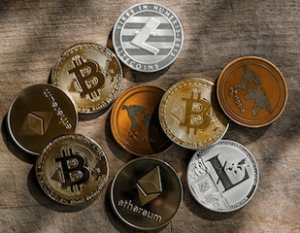The law commission established by the order of the Indian government has issued a report recognizing cryptocurrency as a means of payment. This is reportedly the first time that a body appointed by the government admitted cryptocurrencies have value and can be used in transactions.
Also read: Yahoo! Japan Confirms Entrance Into the Crypto Space
Government-Appointed Body Recognizes Crypto
 The Law Commission of India recently published a report on the legal framework for gambling and sports betting in India. The 140-page report explains that gambling is defined as the act of “wagering or betting on games of chance but does not include betting or wagering on games of skill.” Wagering and betting are subsequently defined as “the staking of money or virtual currency [VC], whether or not it is equivalent to a recognized currency.”
The Law Commission of India recently published a report on the legal framework for gambling and sports betting in India. The 140-page report explains that gambling is defined as the act of “wagering or betting on games of chance but does not include betting or wagering on games of skill.” Wagering and betting are subsequently defined as “the staking of money or virtual currency [VC], whether or not it is equivalent to a recognized currency.”
The commission was established by the order of the Indian government to advise them on legal reforms. It was asked by the country’s supreme court in July 2016 to examine if betting should be legalized in India.
According to the report:
The issue of online gambling has further been worsened by the rise in popularity and ease of availability of VC, a form of electronic money.
 The commission noted that gambling with cryptocurrencies “pushes even the online gambling market underground, and very often, out of the reach of the law enforcement authorities.”
The commission noted that gambling with cryptocurrencies “pushes even the online gambling market underground, and very often, out of the reach of the law enforcement authorities.”
While proposing that “stringent law(s) should be put in place to control foreign direct investment and at the same time, to prevent money laundering, while also implementing necessary tax reforms,” the commission wrote in the report’s conclusions and recommendations section:
Similar restrictions should also be prescribed for the purpose of the amount one would be allowed to stake while using electronic money facilities of the likes of credit cards, debit cards, net-banking, VCs, etc.
The report additionally states that “gambling transactions should be made cashless, making use of electronic means of payment such as credit cards, debit cards, net-banking, virtual currencies (VC – also known as cryptocurrency), etc.”
Implication of the Law Commission’s Report
 The report also cites the April 6 circular issued by the Indian central bank, the Reserve Bank of India (RBI), banning banks from providing services to crypto businesses.
The report also cites the April 6 circular issued by the Indian central bank, the Reserve Bank of India (RBI), banning banks from providing services to crypto businesses.
Last week, the Indian supreme court heard some petitions relating to crypto regulation and the RBI ban. While the crypto community was hopeful that the court would hear all the petitions and perhaps even grant a temporary stay on the RBI ban, the court reportedly did not hear all the cases and proceeded to set the final hearing date to September 11, allowing time for RBI and other regulators involved to respond to the petition.
Commenting on the law commission’s proposal, Nischal Shetty, CEO of crypto exchange Wazirx, told Quartz:
It is the first time that a body appointed by the government has given recognition to virtual currencies that they have value and can be used for a transaction … Therefore, it is a very positive sign, especially considering the report has come out after a lot of deliberation.
Tuhina Joshi, an associate at legal firm TRA Law which represents several crypto exchanges, was quoted by the publication, “the law commission recommends that regulating gambling is preferable to an outright ban. This is the same argument we are making in context of cryptocurrencies.”
What do you think of the law commission’s proposal? Let us know in the comments section below.
Images courtesy of Shutterstock.
Need to calculate your bitcoin holdings? Check our tools section.
The post Indian Government-Appointed Commission Recognizes Crypto as Means of Payment appeared first on Bitcoin News.














